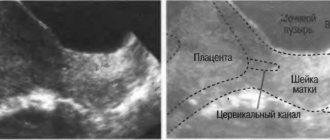According to medical statistics, labial herpes (usually we call it “cold sores”) occurs at least once in a lifetime in 90 percent of women of childbearing age. During pregnancy, every third expectant mother experiences such a problem.
Does this mean that the disease should not be taken too seriously? Not at all.
The disease, which is so common and, at first glance, harmless, is infectious in nature, can appear anywhere - on the eyelid, on the eye, in the mouth, in the nose, in internal organs, and sometimes affects the nervous system, causing a woman a lot of trouble.
In addition, there is already a greater responsibility towards the future son or daughter - will the mother’s illness have a negative impact on their health?
Causes and symptoms
You can become infected with herpes through direct contact with a sick person or through airborne droplets. Who and when “shared” the virus with the woman may remain a mystery.
The fact is that the carrier of the infection sometimes exists in the body for years without detecting itself, and is only waiting for some provoking factor in order to properly “unfold.”
This often happens against the background of weak immunity, and the impetus for herpes to manifest itself can be:
- severe hypothermia of the body;
- unusually hot climate, long exposure to the sun;
- overwork and stress;
- the presence of viral diseases such as ARVI;
- poor nutrition.
Experts call two types of the virus: upper (it is, in fact, located in the upper part of the body - on the face, in the throat) and lower (this type is characterized by lesions in the intimate area, on the pubis, on the buttocks - the buttock is often susceptible to the virus, in some internal organs).
However, regardless of the “dislocation”, the clinical symptoms of herpes are the same. First there are red spots, then there are blisters (papules).
A person experiences not only discomfort, but painful sensations appear, sometimes quite strong. Lymph nodes may become enlarged.
When the papules open, ulcers appear in their place, and then scabs. The painful sensations persist for quite a long time, even after the skin is completely free of sores.
When herpes becomes active, a woman experiences weakness, chills and muscle pain may appear, and the temperature may rise.
You can read more about the causes of herpes on the lips in this article.
Reasons for virus activation and transmission routes
Genital herpes is transmitted from person to person:
- sexually - traditional, oral, anal sex, petting;
- household - through common hygiene items, for example, a bath towel;
- vertical - from mother to child during pregnancy through the placenta or when the baby passes through the birth canal.
There are known cases when infection with genital herpes occurred directly - during an internal organ transplant operation, during a blood transfusion and through contact with the patient’s mucous membrane. Here, the risk group consists of doctors (dentists, surgeons, gynecologists).
After the initial infection with herpes type 2, an infectious rash does not immediately appear on the genitals. Viral agents penetrate epithelial cells and nerve ganglia of the skin, where they exist hidden for a long time. Activation of the herpes virus occurs when immunity is reduced, under stress, as a result of hormonal imbalance or hypothermia.
In pregnant women, herpes becomes more active due to a weak immune system. The last factor is an inevitable phenomenon - in this way nature protects the fetus from the aggressiveness of the maternal immune system.
Why it is dangerous and how it affects the body
Is herpes on the lips dangerous for an expectant mother? There is no clear answer to this question. In each specific case, the doctor will definitely analyze the situation.
There is no need to worry if a woman has already had a similar disease before and now has a repeat episode in the early stages of pregnancy (the so-called recurrent herpes).
This indicates that in her new state, the expectant mother has lost some of her immune capabilities - and the virus has discovered a “weak link.” But antibodies have already appeared in the body at one time, and now they just have to work.
In a word, such a situation is not threatening for the expectant mother and does not negatively affect the fetus.
It’s worse if herpes “popped up” for the first time. This means that a primary infection has occurred, with all the ensuing consequences: fever, body aches.
How serious the problem is is evidenced by the fact that a pregnant woman diagnosed with labial herpes will be present during labor and give birth in the infectious diseases department of the hospital.
If in a normal situation the infection is treated quickly and effectively (you can take the pills recommended by the doctor, use almost any ointment), then for a pregnant woman many medications are prohibited.
In such a situation, it is especially important to strictly follow the instructions of specialists, not to self-medicate and not to fall under the influence of friends and relatives who “always know what and how to treat.”
Treatment methods
Infection with primary HSV-2 is not a reason to terminate a pregnancy. The main thing is that the woman seeks medical help in a timely manner. Treatment of genital herpes during pregnancy is carried out with the same antiviral drugs that are prescribed in normal situations, but only use them strictly following the doctor’s recommendations.
Immunotherapy
A woman’s immune system weakens significantly after conceiving a child, but this fact is normal in this condition. To strengthen the immune system in the early and late stages, pregnant women are prescribed:
- B vitamins - take part in all metabolic processes of the body, improve the functioning of internal organs, and have a beneficial effect on the skin, nails, and hair.
- Interferons - to suppress the activity of the herpes virus and increase immunity in early pregnancy (from 14 weeks) Viferon is prescribed, from 28 weeks - Interferon (suppositories, ointment).
Also, while pregnant, in order to strengthen the immune system, women are recommended to drink an infusion of fresh or dried blackcurrant leaves (pour 2 tablespoons of leaves into 1 liter of boiling water, let it brew before drinking), as well as weak black tea or plain water with a few teaspoons of natural honey and a slice of lemon.
Antiviral therapy
How and how to treat herpes type 2 at different stages of pregnancy:
- First trimester - Acyclovir or Zovirax ointment is used, after 30 days a scraping is done for PCR.
- In the second - Acyclovir in the form of a cream, it is used to treat inflamed areas up to 8 times a day, Viferon suppositories are additionally prescribed, and after 4 weeks a control test is done.
- 3rd trimester - involves 2-3 weeks of antiviral therapy with Acyclovir tablets, as well as local treatment with ointment or cream.
Antiviral therapy with Acyclovir during pregnancy is carried out only with the permission of a doctor. As a rule, it is prescribed for moderate to severe genital herpes. During this period, the woman must strictly follow all the specialist’s recommendations (dosage of medications, duration of use).
Local treatment
In addition to antiviral ointment based on acyclovir, pregnant women are prescribed:
- Decoctions of medicinal herbs (sage, chamomile, calendula) and antiseptic medicinal solutions (hydrogen peroxide, potassium permanganate solution). Use before applying ointment to disinfect and dry infectious rashes.
- Levomekol, Bepanten - drugs heal ulcers formed at the site of herpes blisters, accelerate the restoration of the skin and mucous membranes.
You can prevent the appearance of herpes rashes and relieve itching with the help of essential oils of mint and lavender. Mix 1 drop of oils and add 0.5 tsp to them. vegetable oil.
Varieties
Depending on the “dislocation” of the rash, more than a dozen varieties of herpes are distinguished.
The most common is the herpes simplex virus (HSV), which affects the lips (type 1 virus) and the perineal area (type 2 virus).
Unfortunately, herpes zoster, better known as shingles, and cytomegalovirus, which affects internal organs, are also not uncommon. We wrote about the symptoms and treatment of herpes zoster (herpes) here. What is cytomegalovirus and how is it transmitted, read this material.
Type 4 virus is especially dangerous, as it is considered a trigger for serious diseases such as hepatitis and cancer. Herpes type 6 affects lymphocytes.
The main symptoms and treatment methods for adults with atopic dermatitis are discussed in this article.
What medicinal shampoos are there for seborrheic dermatitis on the head, their names: this is what our publication is about.
What is neurodermatitis, symptoms and treatment are discussed here: https://udermatologa.com/zabol/derm/neyrodermit-prichiny-simptomy-metody-lecheniya-u-vzroslyh-i-detey/.
Diagnostics
Having discovered characteristic signs of herpes (especially if it “came out for the first time”), the expectant mother should see a doctor.
Whether there is immunoglobulin (Ig) in the patient’s blood will be determined by the following analysis:
- IgG positive indicates that antibodies are present, so-called high avidity is noted (the ability of the immune system to quickly respond to a threat);
- IgM means that the woman has become infected with the virus for the first time and more serious efforts will be required to cure her.
To diagnose herpes at different stages of pregnancy, various laboratory tests are carried out:
- blood test in each trimester, including in later stages;
- electron microscopy;
- immunofluorescence microscopy (the method is based on the ability of ultraviolet light to detect infected tissue);
- testing of biomaterials (bubble fluid, saliva).
Using ultrasound, the condition of the fetus is monitored; in addition, its blood is taken and analyzed using a special technique.
Herpes and pregnancy
Newborn babies require special care in the first year of life, because their body is susceptible to various diseases due to a weakened immune system.
The virus can penetrate the body of any person, regardless of his or her health status, so pregnant women are required to monitor themselves more carefully.
A woman should first monitor the problems in her body, and then think about the child in the womb, otherwise she will endanger both.
Difficulties in penetration of herpes into the uterine sac can be varied.
Consequences of herpes for a child during pregnancy:
- premature birth;
- spontaneous miscarriage;
- developmental deviations and abnormal changes.
How to treat herpes on the lips during pregnancy (1st trimester)
In the first trimester, when the baby’s body is just beginning to form, any treatment should be approached with caution.
If a pregnant woman has developed herpes for the first time, it means that her body has already produced antibodies that will be passed on to the child and protect him (when he is born) for at least six months.
For treatment in the 1st trimester the following are used:
- Acyclovir (in the form of droppers);
- human immunoglobulin (droppers);
- externally – aniline dyes, oxolinic ointment;
- multivitamin complexes as a general strengthening agent.
The initial stage of the disease allows the use of baby cream. Other creams and ointments, especially hormonal ones, can pose a danger to the woman and fetus.
Herpes during pregnancy: localization of rashes
The localization of a herpetic rash (the place of its appearance) is determined by the type of virus:
- Herpes simplex during pregnancy is located in the form of separate round rashes on the skin of the face or around the genitals . If the rash is located on the face, it is a type 1 virus or HSV-1. If the rash is localized around the anus and genitals, it is a type 2 virus or HSV-2. The first type of herpes is called labial or oral. And the second is genital or sexual. Genital herpes during pregnancy creates the possibility of infecting the child both during pregnancy and during childbirth.
- Herpes zoster during pregnancy forms extensive rashes all over the body - most often on the sides around the torso, less often around the hips and legs or forearms and arms. When initially infected, herpes zoster is a well-known chickenpox infection. If it relapses again, it causes herpes zoster.
- Cytomegalovirus during pregnancy does not form rashes. Its appearance is accompanied by fever and symptoms of a cold infection (flu), and diagnosis is made using a laboratory blood test.
- Epstein-Barr virus also occurs without rashes. It forms infectious mononucleosis.
And now - in more detail about the localization of herpetic rashes in various types of herpetic infections.
Blistering rash on face
More often than others, herpes during pregnancy appears on a woman's face . This is the oral type or labial herpes. During pregnancy, it can also form rashes on the shoulders, neck, and décolleté.
The frequency of rashes on the face is explained by the widespread infection. The labial type of herpes affects 95% of the population of developed countries. Most women get the infection in childhood, so 95% of pregnant women are carriers
virus. Recurrence of herpes during pregnancy is facilitated by a physiological decrease in immunity, which forms during pregnancy for various reasons (more on this below).
Often the virus has “favorite” places for rashes (during relapses, blisters appear on the same “ traditional
» areas of the skin). For example, facial herpes on the lip during pregnancy appears along the outer border of the lips, in the corners of the mouth or inside the mouth - on the mucous membrane. It can also appear under the nose, on the cheeks, or on the cornea of the eye (ophthalmoherpes is one of the most severe complications of the infection). Herpes under the nose also causes discomfort. During pregnancy, it often occurs against the background of a cold and runny nose.
Rash around the genitals
Rashes in the genital area form less frequently than on open areas of the body. This rash is the result of the second (genital) herpes virus. Infection with this virus occurs during sexual intercourse; it is a sexually transmitted infection.
Carrying the HSV-2 virus is not so common. Only 20% of the population is infected with this type of herpes. Therefore, for most pregnant women, genital herpes during pregnancy poses a serious danger (due to the lack of antibodies to this type of infection).
Extensive rash all over the body and chickenpox
The well-known chickenpox is the third type of herpes infection or the Zoster virus. This disease is widespread; many women had chickenpox in childhood . Therefore, the virus does not pose a danger to their uterine child (a woman’s blood contains immune bodies that counteract the chickenpox virus).
If a woman does not have a history of chickenpox, she can become infected with it during pregnancy. With primary infection in the 1st trimester, the probability of the formation of pathologies is 5%. In subsequent trimesters, the likelihood of pathologies becomes even less. Therefore, as a rule, chickenpox or zoster does not harm the fetus in the womb .
Recurrence of chickenpox occurs mainly in older people. With very low immunity, it can appear in a pregnant woman. It is called shingles (it looks like extensive shingles around the body, or around the shoulders, hips).
When chickenpox recurs, the localization of the rash is determined by the exits of nerve endings to the surface of the skin. Therefore, post-varicella herpes in pregnant women is always extensive and very painful.
When planning a baby
When planning a pregnancy, it is advisable to do an analysis for the presence of antibodies in the body.
If a woman has never had herpes before and the test gives a negative result, you need to try to be as careful as possible in everyday life: follow sanitary standards, do not use other people’s utensils, wash your hands often and avoid contact with people who may be carriers of the virus.
If antibodies are present in a woman’s body, it is important for the doctor to know whether their norm is exceeded, and if so, by how much.
If it turns out that there are a lot of antibodies, this means that the virus is being reactivated in the body, and the woman needs to be treated before becoming pregnant so that her body is healthy when she conceives.
Treatment is usually carried out with local drugs that inhibit the activation of the virus without disturbing any other processes in the body - both ovulation and conception will proceed as they should.
What to do while breastfeeding
An exacerbation of herpes may well occur in a nursing mother, but this disease does not prohibit feeding a baby with breast milk .
This is what most pediatricians think, including Evgeny Komarovsky, whom women know well from TV shows and consultations on the Internet. Breastfeeding a baby is unacceptable in one case - if there are rashes on the nipples.
A woman must also adhere to the following rules:
- approach the child only with hands washed well with soap;
- if herpes is on the lips, on the chin - do not kiss the baby, if on the body, on the arms or legs - do not allow the child to touch these places;
- when feeding breast milk, when the woman’s face is very close to the baby, it is advisable to wear a mask;
- if the rash is only on one nipple, the second (healthy) breast can be given to the child, and milk can be regularly expressed from the patient so as not to disrupt the lactation process.
During lactation you should not self-medicate. The doctor will recommend the necessary medications to extinguish the source of infection and relieve unpleasant symptoms.
These could be, for example, Acyclovir and Zovirax ointments (they hardly enter the bloodstream, and the newborn will not suffer from them), which can be applied to the skin up to 5 times a day.
If the sore appears on your husband
Even if a woman has a permanent partner and is insured against various sexually transmitted diseases, a common cold on her husband’s lips can lead to infection.
What this threatens for a woman who has never suffered from herpes before is known - complex, with fever, and the course of the disease.
To avoid catching the virus and to avoid infection, you need to be careful, especially during pregnancy. Any characteristic sore on the partner’s body (on the thigh, on the back, on the stomach) cannot be ignored.
If a sign of the disease is present on the genitals, you should use a condom. If on the lips, refrain from kissing and do not allow oral-genital contact with each other.
If the spouse’s disease is chronic, he may be recommended suppressive therapy during his wife’s pregnancy—long-term, frequent use of medications for preventive purposes.
And to protect the genitals from pathogenic microbes, you can use Epigen intimate gel or similar preparations.
If you are interested in how to cure oral dermatitis on the face, how to prevent the disease, what are its causes, read our article.
A list of analogues and substitutes for Advantan ointment is presented in this material. Find out more!
Consequences for the child
Intrauterine infection can lead to the development of neurological diseases in the child, which is the most dangerous complication in the absence of appropriate therapy during pregnancy.
There are the following symptomatic signs of viral infection in newborns:
- Painful vesicles with serous contents appear on the baby’s body.
- Possible enlarged lymph nodes.
- Herpetic stomatitis, accompanied by high body temperature and increased salivation. Erosion that forms in the mouth may not heal within 14 days.
The first external manifestations of the disease are observed 1-2 weeks after birth.
Doctors offer the following classification of clinical forms of viral infection in newborns:
- Localized. This form is characterized by the appearance of multiple blisters on the body, which then open, forming ulcers that do not heal for a long time. Cases of brain damage are common.
- Generalized. It is characterized by the occurrence of nonspecific symptoms of the disease: frequent regurgitation, lethargy, shortness of breath.
- Damage to the central nervous system. The child completely refuses food, and generalized convulsions are observed. Excessive excitement gives way to drowsiness. Thermoregulation is impaired.
Yellowing of the skin on the 3-4th day of life is a sign of viral infection in newborns.
There are a number of additional signs:
- Yellowing of the skin on the 3rd-4th day of life.
- Urine becomes dark and stool becomes discolored.
- Pneumonia.
To avoid infecting the child, if genital herpes is detected in the mother in late pregnancy, the doctor does not recommend natural childbirth.
Genital herpes
Herpes blisters can appear on a woman’s labia. If vaginal herpes, which affects the vagina, is not very harmful to the child (statistically, children become infected with this infection from their mothers in 0.002 - 0.05 percent of cases), then for a pregnant woman this virus is truly dangerous, especially if it is not secondary, but diagnosed for the first time.
Genital herpes in some women is the cause of missed abortion . This is the name for a condition in which the fetus stops developing and therefore dies. This can happen as early as the first week of pregnancy or during the 1st trimester.
This type of disease is treated in a hospital. Cauterization is not performed on pregnant women; various antiviral drugs and suppositories are used (for example, Genferon, Viferon).
If the disease cannot be dealt with in a timely manner, a cesarean section is prescribed in the final stage of pregnancy to prevent the baby from becoming infected during the birth canal.
In addition to the article, we attach a video about genital herpes during pregnancy (risk prevention, treatment):
How dangerous is the disease in the 2nd trimester?
Infection of a woman for a period of 3 to 6 months does not pose a great danger to the fetus, since the main systems are already formed and are operational.
If she already belongs to the group of carriers of the infection, the risk of pathological changes is insignificant, even at the time of activation of herpes at the time of gestation. However, the risks of damage to the placenta are high, and this can cause oxygen starvation.
A child infected in the 2nd trimester is born with underweight and weakened immune defense.
In addition, this period is the period of laying bone tissue, nerves and reproductive systems. There is a possibility of premature contractions.
Reviews
Lisa R.: “I often get colds on my lips, I know how to treat them, but pregnancy is such a thing... In general, I didn’t do anything without the advice of a doctor. The doctor imposed a restriction on Acyclovir, which I knew well - to apply it for 4 days, no longer. I got there at three and dealt with the pain.”
Zoya D.: “During pregnancy, folk remedies helped me cope with herpes - mint oil and tea tree oil (if anyone wants to follow my example, make sure you are not allergic to it). They need to be used as early as possible, before the bubbles open, otherwise there will be a strong burning sensation. Lungwort also helps me - I make an infusion and drink it.”
Arina K.: “I was very surprised when the doctor recommended Corvalol, a heart drug, to treat rashes in the first month of pregnancy. I went to a forum where all sorts of ailments are discussed, and discovered that many people know about Corvalol and use it successfully. The main thing is that it is safe for expectant mothers.”
Danger of the 1st trimester
In the first three months of active pregnancy, all vital systems and organs are formed in the child.
That is why, for the child, the consequences of herpes in the first trimester of pregnancy on the face or genitals of the mother ends with the following:
- Cerebral palsy and other forms of abnormal development.
- Neurological problems.
- Delay in the development of the nervous system, brain, hearing and visual apparatus.
- Miscarriage and freezing.
- Umbilical cord entanglement.
In many cases, the newborn will be a carrier of the infection.










